
Recently I was provided with the opportunity to play Atelier Arland Series Deluxe Pack, a series of games in a trilogy, known as Atelier Arland Meruru, Totori, and Rorona, which are part of the now 13-game long series called Atelier. The three games are a series taking place in the land of Arland, focusing on the princess Meruru who wishes to be an alchemist, the alchemist teacher Totori, and Rorona, another alchemist.
Despite the three games being separate, they play roughly the same, and all flow into each other, with Rorona coming first, Totori coming after, and then Meruru rounds it all off. All of them are published by Koei Techmo and developed by the Japanese studio Nippon Ichi Software, known for a large amount of anime-based games such as the Disgaea and Phantom Brave games, and the style of this game very much reflects those titles. The games are bright, lively, and bursting with color, with all the environments looking visually stunning and very distinct, especially towards the end. The character designs reflect this too, as while they are designed to look as…anime as possible, they are very expressive and nicely designed, and seeing these characters interact is always very pleasant, especially since the dialogue also maintains a comical vibe throughout.
However, the games are also not afraid to revel in its darker moments as well, and there are surprising amounts of these towards the end. It’s not exactly on the level of something like Doom or God of War, but it’s certainly not just a cute kiddy game.
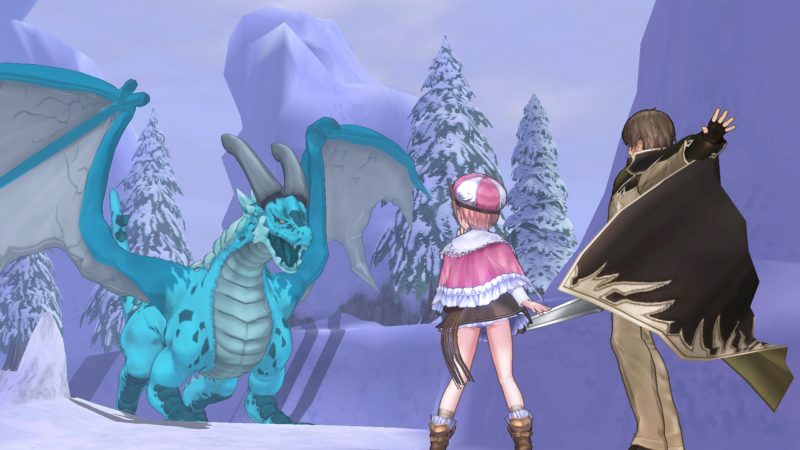
The cutscenes in general are split into two halves: animated portions with full voice acting as the characters move around, and text boxes with character portraits that alternate between full acting and simple text. The movement animation is a little bit stiff, but it also carries a lot of charm to it, especially in the facial animations. This is even more so with the text only scenes, as while they lack in terms of body movement, they generally make up for it with the facial animation once again, and coupled with the surprisingly good voice acting, it makes for an overall stellar presentation, especially with the music which always fits the scene that it’s in, be it lighthearted and fun or dark and brooding.
As for the gameplay, it is a standard turn-based RPG with a 3D overworld, very similar to that of the Hyperdimension Neptunia games, If I were to compare it to anything. You move around the area and collect materials which you can use in the crafting shop to create things like bombs, healing salves, battle items, and numerous other elements, along with fighting enemies by walking up to their overworld models.
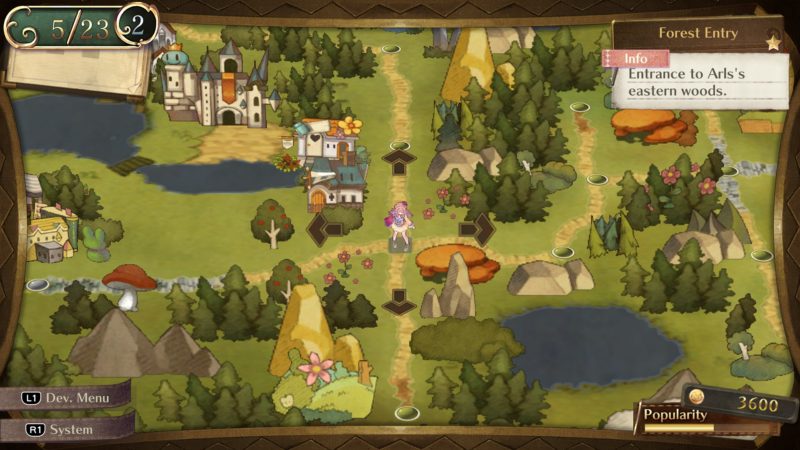
The battles, however, aren’t done in traditional turns. Instead, depending on the speed of your character, they may get one, two, or maybe even more chances to attack for each character in your party before the enemy gets to attack once. As you can imagine, early on this makes battles incredibly easy, as many times you can kill an enemy before it even has a chance to deal you more than 10 damage. This isn’t the case for the tougher boss enemies, though, as those enemies are easily capable of killing you if you aren’t prepared. The first boss
Thankfully, dying in combat doesn’t end your game, but merely sends you back to your crafting shop, where you can rest on the bed to heal wounds, store materials in your container, and look at your journal.
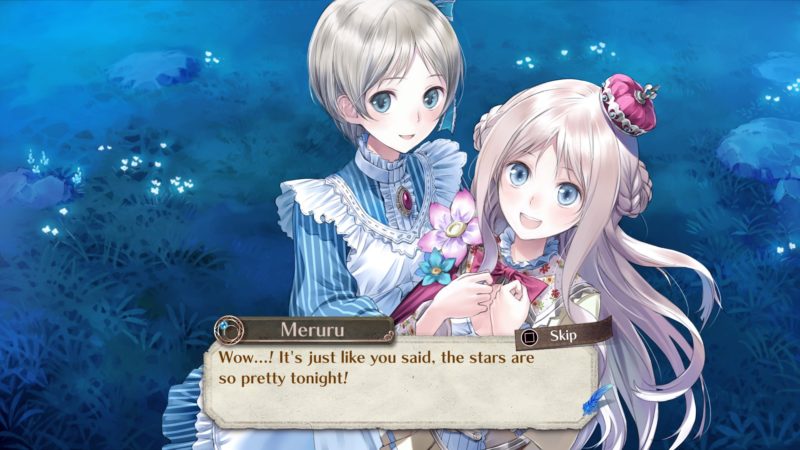
You can save the game anywhere, thankfully, so be sure to abuse this in order to avoid wiping your progress, or use it to save-scum if you wish. Mercifully, the game also has a fast travel system to skip between parts of an area you’ve already explored, which tremendously cuts back on backtracking and keeps the game moving at a swift pace. The game doesn’t even have a proper overworld, but rather a level selection screen where you travel between spaces using LP, and if it runs out you’re forced to wait for it to recover, so be cautious. You can expand your LP and other facets of your skill set by developing your nation of Arls, which is done through the use of completing sidequests to increase your popularity and development points in order to build new facilities like an alchemy academy, a schoolhouse, and much more, which further serves to heighten your power level and make it easier to go through the game.
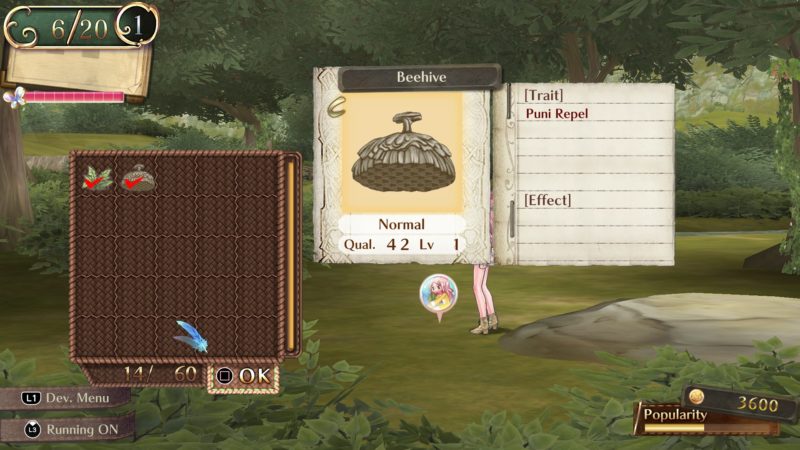
Most of the options related to this are optional after the first few tutorials, though, so you never need to utilize this feature and can play the game in your own way, which I like. As for combat itself, it works just fine. You can guard, flee, use items, and attack, and later on you also acquire magic spells and abilities to really lay on the damage. Some moves even multi-hit so you can finish battles quicker by attacking multiple targets at once, and while they can be weak for certain characters like Keina, on characters like Lias they are incredibly destructive sword bashes that reduce enemies to ribbons in seconds.
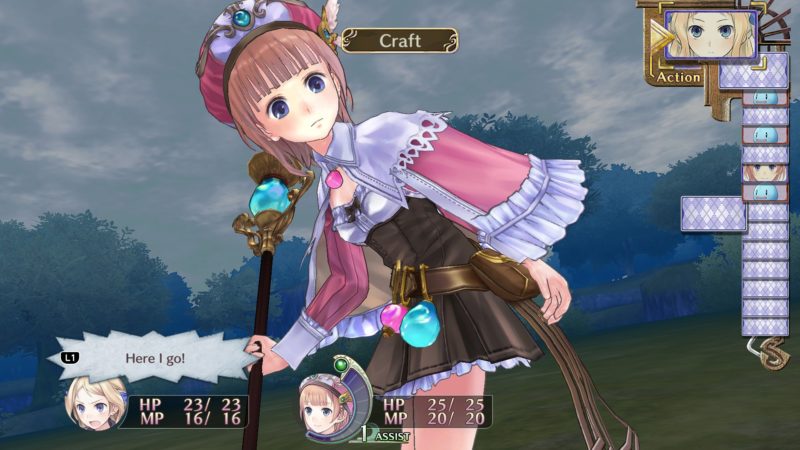
On occasion, you also get the option to use a Focus Guard, which allows you to use one character as a shield to defend Meruru, taking less damage than the attack would normally deal and sparing Meruru from damage. Speaking of the characters, I found them very likable. They’re somewhat stock anime clichés, such as Keina being the generic maid character, Meruru being a character whose a princess but doesn’t want to be a princess, and Rufus being the stern older brother who really just cares for her sister but doesn’t know how to fully show it, but they all bring their own personalities to the table and they’re all incredibly fun to watch as they play off each other, such as Lias being uncomfortable about his past weakness and characters poking fun at it, or Totori being incredibly lazy but still caring for Meruru. I personally enjoyed much of what I played of the games overall, and I would definitely recommend them. Although they’re packaged as part of a trilogy in connected order, I don’t think there’s much harm in starting with the one you like the look of the most and going from there, as the most you’ll miss out on is some fun nods to the previous games. And what you get as a result are three fast-paced, fun, and very tongue-in-cheek RPGs that’ll have you engaged for a very long time.
8/10: Really Enjoyable.
Check Out the Atelier Arland Series Deluxe Pack Nintendo Switch Trailer:
Atelier Arland Series Deluxe Pack is available in North America for Nintendo Switch, PlayStation 4, and PC via Steam.
Nintendo Switch Review
My name is Orkhan Justin Hazrati, username JJSlider. I'm generally a Nintendo player when it comes to games, but I have branched out to numerous other franchises from the likes of Naughty Dog, Insomniac Games, Wayforward, and many others. Generally I like almost any type of game, barring the FPS and Strategy genre.

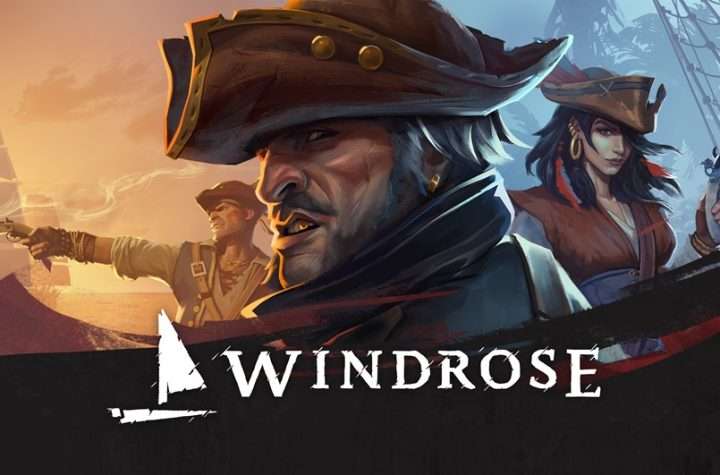
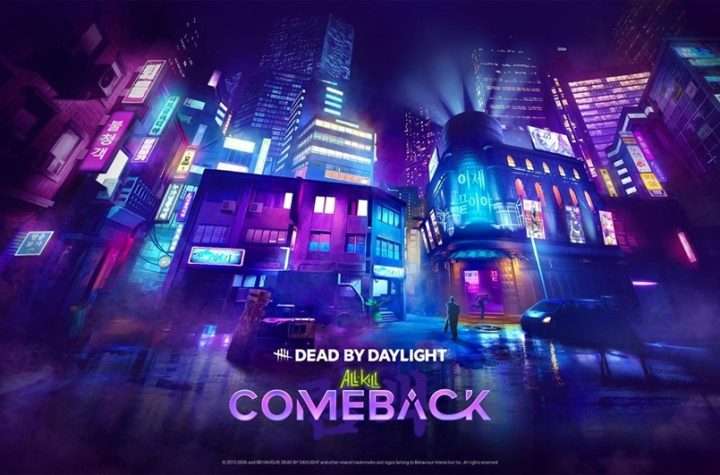
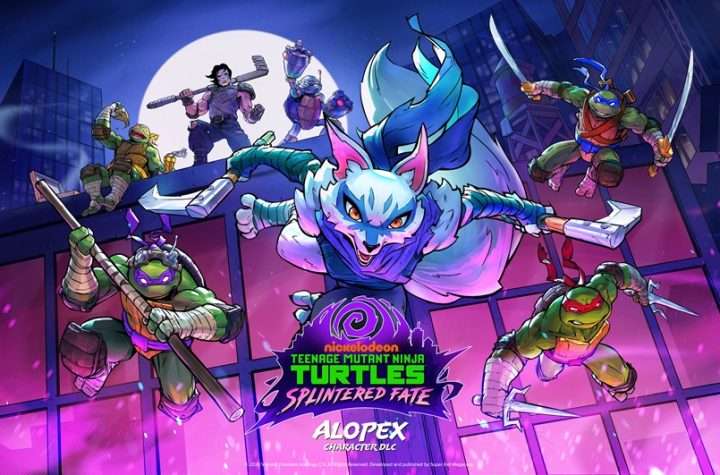
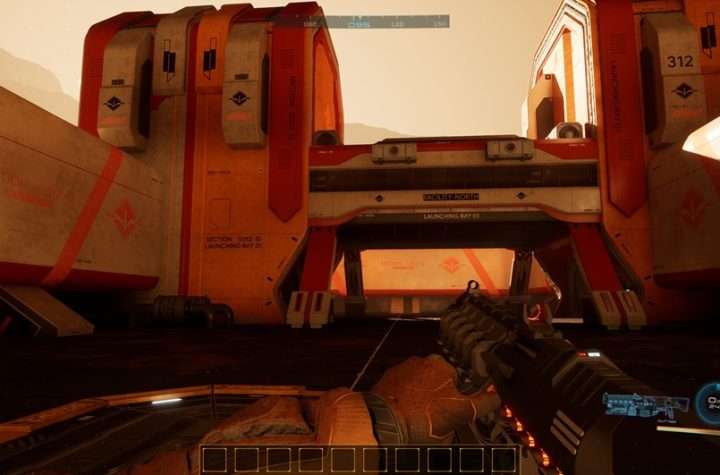
More Stories
WINDROSE Preview for Steam
Public Test Build for Dead by Daylight’s New All-Kill: Comeback Chapter Now Live
Teenage Mutant Ninja Turtles: Splintered Fate Launches New Alopex DLC